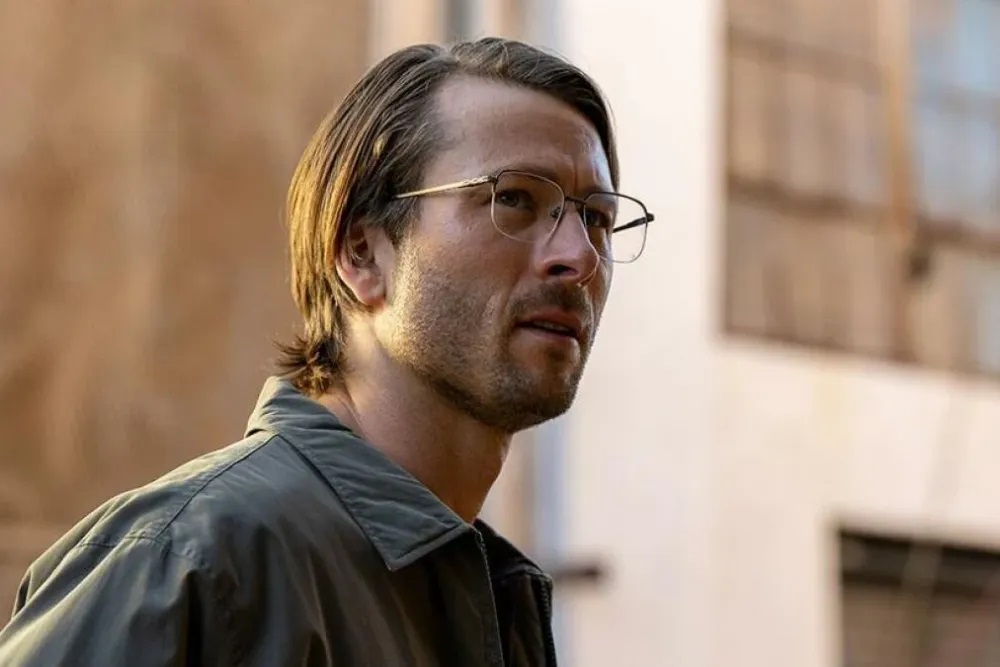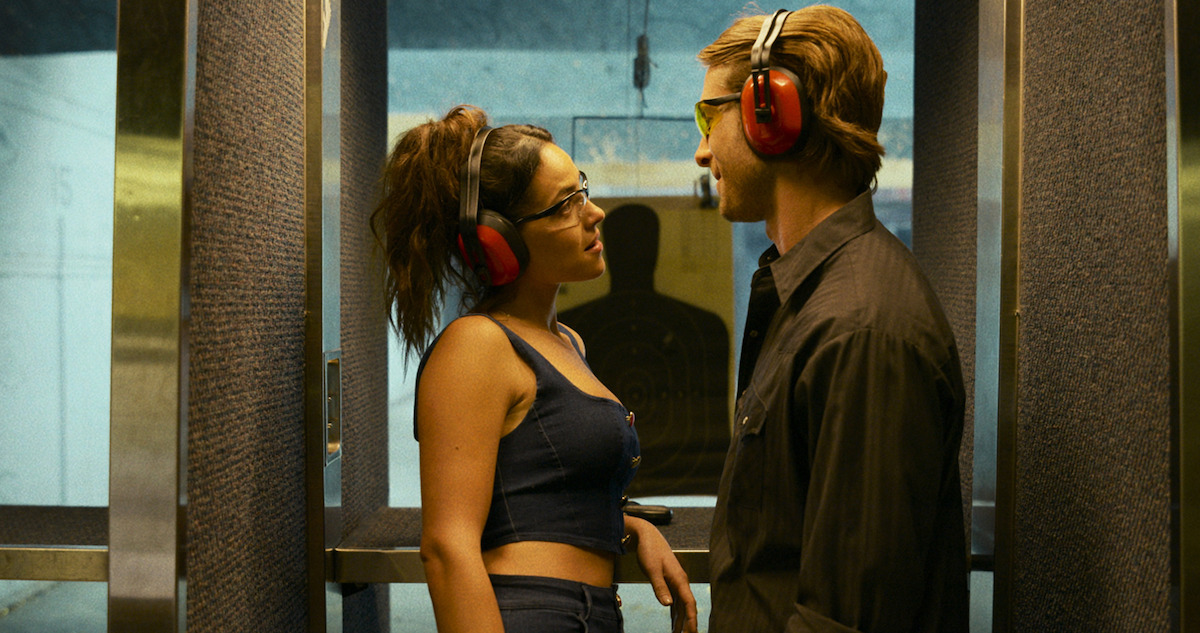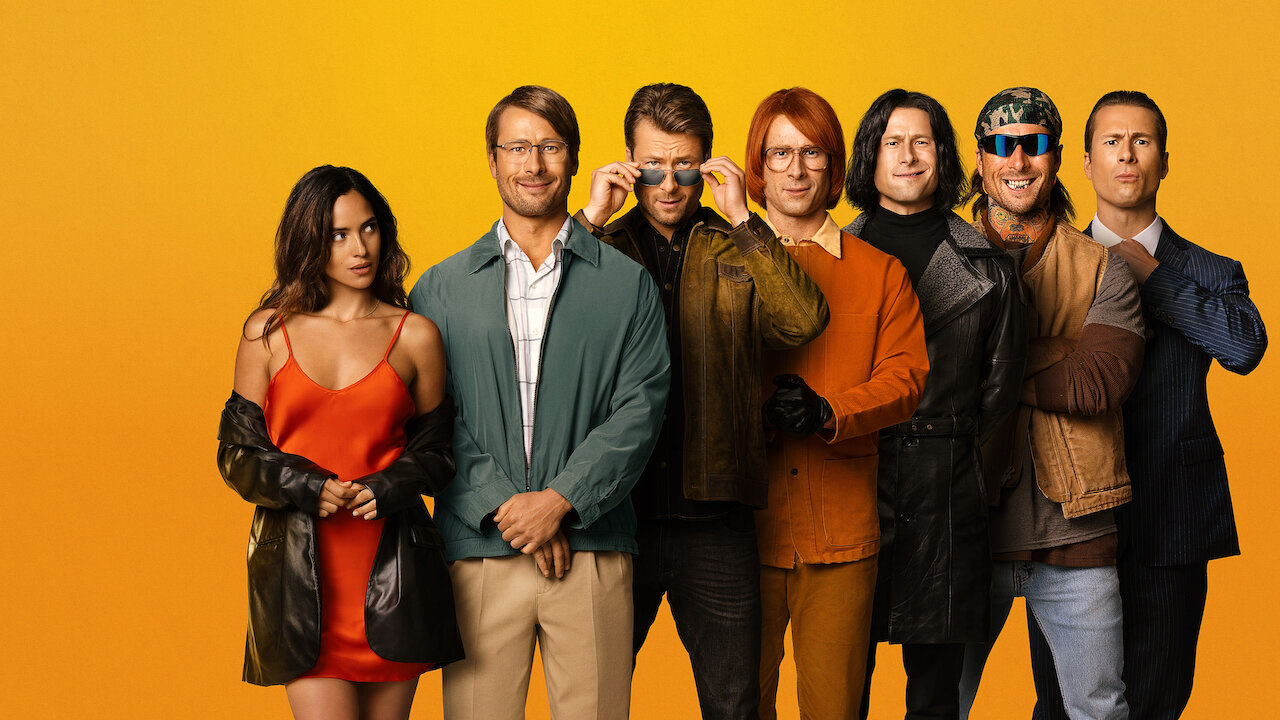The last time I found myself engrossed in a movie that effortlessly blended humor, suspense, and heartfelt moments, I wasn’t expecting the emotional rollercoaster that Hit Man would take me on. Directed by Richard Linklater and starring Glen Powell, this film has been creating a stir since its festival circuit debut. Known for capturing the essence of human experiences with nuance, Linklater’s latest venture did not disappoint. Hit Man turned out to be a delightful surprise, blending humor, suspense, and heartfelt moments in a way that left a lasting impression.

From the outset, Hit Man seemed promising. The film stars Glen Powell as Gary Johnson, a psychology and philosophy professor at the University of New Orleans, who leads a double life as an undercover hitman for the New Orleans Police Department. This unique premise sets the stage for a film that skillfully blends comedy, crime, and romance. The blend of these genres creates a rich tapestry that keeps the audience engaged, offering moments of laughter, tension, and genuine emotion.
Hit Man centers around Gary Johnson, a mild-mannered academic whose life takes an unexpected turn when he steps in to play the role of an undercover hitman named Ron. When an undercover detective is suspended, Gary relishes the opportunity to use his skills in psychology to deceive those who seek to hire a hitman. The film follows his transformation from a mundane professor to a multifaceted hitman, revealing the complexities of leading a double life.
As Gary navigates his new role, he crosses paths with Maddy, a femme fatale played by Adria Arjona. Maddy’s involvement adds an intriguing layer to the story, forcing Gary to confront the moral ambiguities of his actions.
Their relationship evolves from initial suspicion to a deep, emotional connection, driving the narrative forward and providing a heartwarming counterpoint to the film’s darker themes.
Glen Powell’s portrayal of Gary/Ron is nothing short of masterful. He transitions seamlessly between the timid professor and the confident hitman, showcasing a wide range of emotions and personas. Powell’s performance is both charming and convincing, making Gary’s dual life believable and engaging. His ability to embody various characters within the film adds depth and authenticity to the story.

Adria Arjona, as Maddy, is equally captivating. Her chemistry with Powell is electric, adding a layer of intensity and intrigue to the film.
Maddy’s character is more than just a romantic interest; she is a catalyst for Gary’s transformation and adds emotional weight to the narrative. Arjona’s performance is nuanced, bringing a perfect blend of strength and vulnerability to her role.
The supporting cast also delivers strong performances. Robert Brown, as Gary’s handler, brings a sinister charm to his role, while Emily White, as Sarah’s editor, provides a grounded perspective. Their interactions with the main characters add layers of complexity and tension, enhancing the overall viewing experience.
Richard Linklater’s direction is masterful, seamlessly blending different genres to create a cohesive and engaging narrative. His ability to capture the essence of each character and the dynamics between them is evident throughout the film. The pacing is expertly managed, with each scene contributing to the overall narrative without feeling rushed or drawn out.
Lisa Black’s cinematography is stunning. Utilizing a muted color palette that complements the film’s themes and mood, the visual style enhances the storytelling. Each frame is meticulously crafted to draw the viewer into Gary’s world, with the use of lighting and shadows adding a noir-like quality to the film, especially during the more intense and dramatic moments.

The screenplay, co-written by Richard Linklater and Powell, is sharp and witty. The dialogues are engaging, striking a balance between humor and gravitas. The film delves into themes of identity, self-creation, and the moral complexities of living a double life. One of my favorite lines is when Gary tells Maddy, “Sometimes, the hardest person to kill is the one staring back at you in the mirror.” This line encapsulates Gary’s internal struggle and sets the tone for his journey.
The script is a brilliant mix of clever dialogue and poignant moments. It’s this blend that keeps the audience invested in the characters’ journeys. The writing is both reflective and forward-moving, ensuring that the audience is not just watching a series of events, but experiencing the growth and evolution of the characters.
As the title suggests, Hit Man features several well-executed action sequences. The choreography is top-notch, focusing on realistic and intense combat rather than over-the-top stunts.
One standout scene is a showdown in an abandoned warehouse, where Gary takes on a group of armed men. The tight editing and impeccable sound design make this sequence particularly gripping.
The action scenes are grounded, with a focus on precision and realism. Gary’s meticulous approach to his assignments is portrayed with a level of detail that is both impressive and chilling. These scenes are not just about physical confrontation but also about the psychological chess game that Gary plays with his targets.
Beneath its action-packed surface, Hit Man explores deeper themes that add emotional weight to the story. The central theme of redemption is woven throughout the narrative, with Gary’s journey reflecting his desire to atone for his past. His relationship with Maddy acts as a catalyst for his transformation, forcing him to confront his humanity and the consequences of his actions.
The film also examines identity and the masks we wear. Gary’s dual life raises questions about the nature of identity and whether one can truly escape their past.
Maddy’s quest for truth mirrors Gary’s internal struggle, as both characters grapple with the blurred lines between right and wrong. These themes are explored with subtlety and depth, making the film more than just a straightforward action-comedy.
Alan West‘s soundtrack complements the film perfectly. The score is a mix of pulsating electronic beats and haunting melodies, reflecting the film’s tone and enhancing its atmosphere. The music swells during the action scenes, adding to the intensity, while the quieter moments are underscored by somber, reflective tunes.
One standout track, “Echoes of the Past,” plays during a pivotal scene where Gary reflects on his life choices. The music heightens the emotional impact, making it one of the most memorable moments in the film. The soundtrack is not just an accompaniment but an integral part of the storytelling, adding another layer of emotion and intensity to the viewing experience.

Hit Man has strengths, but also flaws. One of the most significant issues is the film’s uneven pacing. While the first half of the movie is engaging and well-paced, the second half tends to drag, with certain scenes feeling unnecessarily prolonged. This uneven pacing disrupts the overall flow of the narrative, making the film feel longer than its actual runtime.
Another notable flaw is the underdevelopment of some key characters. While Glen Powell’s and Adria Arjona’s characters are well fleshed out, the supporting cast does not receive the same treatment.
Characters like Robert Brown’s handler and Emily White’s editor, although intriguing, lack sufficient backstory and development, leaving them feeling somewhat one-dimensional.
The film’s genre-blending, while innovative, can also be seen as a double-edged sword. The constant shift between comedy, crime, and romance genres can be jarring at times, making it challenging for the audience to fully immerse themselves in the story. This genre-hopping occasionally creates tonal inconsistencies that detract from the overall viewing experience.
Additionally, the film’s attempt to address deep philosophical themes sometimes feels forced. The discussions on identity and the masks we wear, while thought-provoking, can come across as overly didactic, disrupting the natural flow of the dialogue. This heavy-handed approach to thematic exploration might not resonate with all viewers.
Watching Hit Man was an exhilarating experience. It’s a movie that entertains and challenges the audience, leaving a lasting impression long after the credits roll. Richard Linklater’s direction, combined with stellar performances from Glen Powell and Adria Arjona, brings a unique and captivating vision to life. The film’s exploration of redemption, identity, and morality adds layers of complexity that elevate it above typical genre fare.
For anyone looking for a movie that delivers on action and offers something deeper to ponder, Hit Man is a must-watch. It’s a film that stays with you, prompting reflection on the choices we make and the paths we take. As the credits rolled, I found myself contemplating Gary’s journey and the broader implications of his story, a testament to the film’s impact.
If you haven’t seen it yet, I highly recommend giving it a watch—you won’t be disappointed. However, be prepared for some pacing issues and underdeveloped characters that may detract from an otherwise engaging experience.






